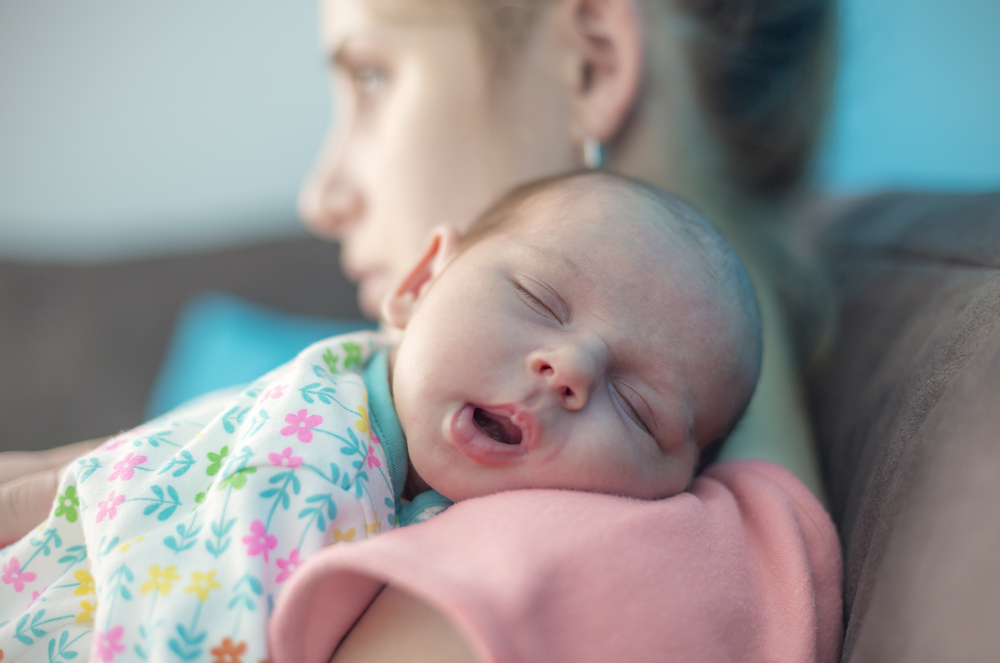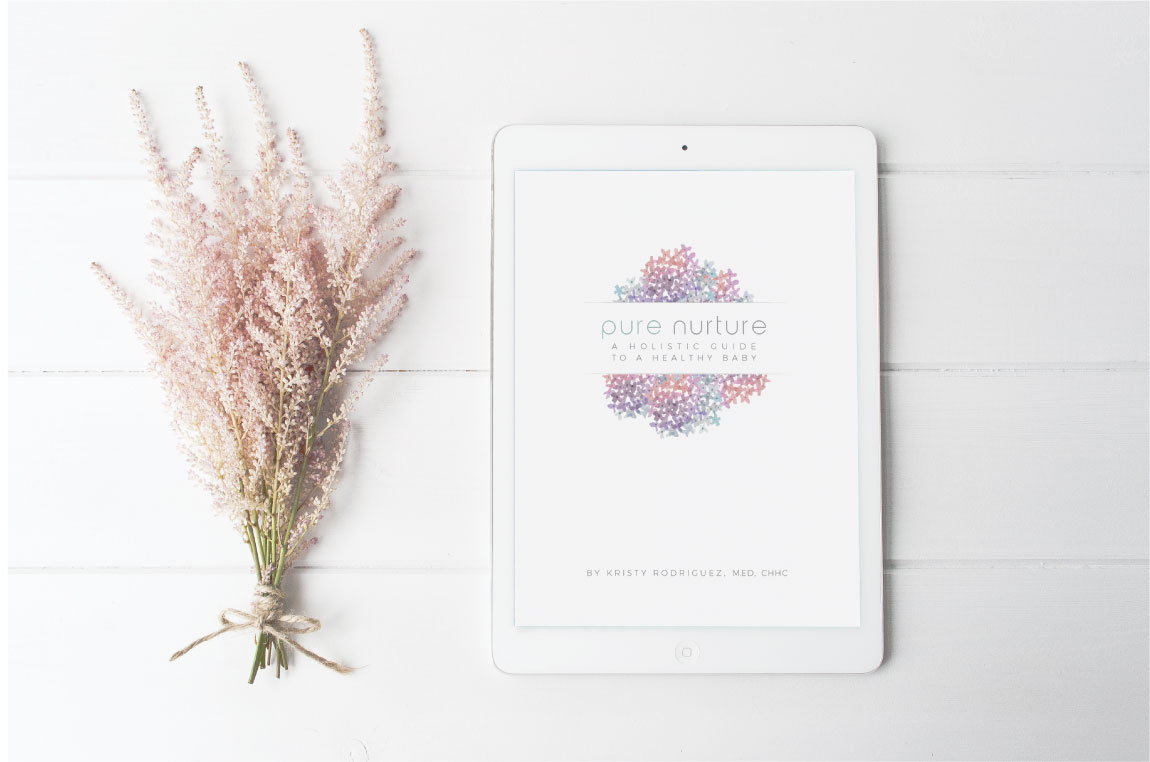Postpartum anxiety can be just as disruptive as postpartum depression. We tend to hear more about postpartum depression, however both can seriously undermine your peace of mind and overall well-being. It’s important to know the signs and symptoms and the best ways to prevent either from causing bumps in the road during your journey into motherhood—doubly so if you are already dealing with mental health concerns.
During pregnancy and your transition into motherhood, there is so much to learn and think about. We can’t possibly fully prepare ourselves for every little thing. However, this topic is one to understand and do your best to manage and prevent. Here are the top 10 important facts to know about postpartum depression and anxiety and how to best manage the different waves of emotions.
- Know that postpartum anxiety or depression can occur anytime in the first year of your baby’s life. I was diagnosed with PPD when my first daughter was ten months old. This was also the time when I started to breastfeed less. The change in hormones seemed to have a big effect on my body and mental well-being. The diagnosis surprised me—I was under the assumption that PPD only happened in the first few weeks after a baby’s birth.
- Learn about the signs and symptoms of postpartum anxiety and postpartum depression. Talk to your doctor, your midwife, your doula, and your mom friends. Then take matters into your own hands by seeking out information from multiple, reputable sources, in print or online. Do not just consume endless horror stories—there’s nothing productive in that. Look instead for sources that focus on prevention and treatment.
- Discuss your concerns with those around you. Get your partner, your care providers, and any friends or family that will be helping you in the early weeks and months on board. Make sure they know what to look for and have a plan for checking in on your mental well-being after delivery. You need the people who know you well on the lookout, just in case you yourself are not in a state to identify what is going on. And if things get bad, they may need to push you a bit to get help.
- Practice mindfulness, meditation or other relaxation techniques. Incorporating a meditation or mindfulness routine into your life can deal a 1-2 punch to PPA or PPD, as it can both help prevent their occurrence or be a part of a treatment plan if diagnosed. And it’s a win-win situation even if you never end up truly needing the extra emotional and mental support, as research supports that such a practice can have amazing benefits on your overall well-being.
- Move your body. Give yourself a gentle nudge to get off the couch, out of bed or out of the house. Although sometimes we can feel a ton of resistance to get going, we usually feel better once we do. (But, if you’re well into your pregnancy or have recently delivered, do get your doctor’s approval for any exercise you engage in!) If you’re struggling with motivation, set a small goal, such as walking to the mailbox, around the block, or to the café on the corner—a celebratory treat might even be in order. Every little bit helps.
- Breathe more deeply. Breathing exercises can be a part of your meditation or mindfulness practice, or a relaxation strategy of their own. Try this one, for instance: settle yourself comfortably, positioned so that your breath is unrestricted. Wiggle your shoulders to shake off any tension. Take a deep breath in for a count of four. Hold it for a count of two (think of it as a pause, rather than a restriction), then breathe out for a count of four, pause, and repeat (at least four breaths is a great goal).
- Just say no. There’s a fine line between a life that feels satisfyingly full and one that feels chaotically overwhelming. It’s easy to say “yes” to a new project or simple request so reflexively as to be almost automatic. And regret it later when you start feeling run ragged. I’m not saying you should stop being helpful or turn down every opportunity that comes your way, but take a moment to think about it. Think of your time and energy as a resource, like money—does the proposed activity fit in your “budget”? If you decide that what’s best for you is to walk away, do it—guilt free. Remember that your energy budget will change during pregnancy and early motherhood, so don’t expect yourself to be able to keep up the same pace of life that you are used to. Minimizing your stressors is one of the best things you can do during this time to protect your mental and emotional health—and pregnancy and young babies are a universally accepted excuse to get out of almost anything, so get in touch with your inner toddler and recapture the joy of saying “no.”
- Be aware of what’s on your plate. Keeping your body healthy helps keep your mind healthy too—but while healthy eating can be difficult at the best of times, pregnancy cravings and aversions and, postpartum, the demands of breastfeeding (if applicable) and caring for a newborn can make it feel impossible. Help yourself to make good choices by keeping healthy snacks accessible. Focus on nutrient-dense foods, including lots of fruits and veggies and healthy fats and proteins. Some items you can buy from the store, but also consider prepping individual snack servings that you can grab easily and always have nearby. This is also a simple task that you can ask for help with—from family, friends, or a postpartum doula.
- Make time for sleep and rest. You know that energy budget we talked about? Well, I hate to break it to you, but during pregnancy your interest rate goes down. What you put in no longer nets you as much return. Because of the energy your body is putting into, you know, making a tiny human, you’re likely to feel extra tired even doing simple tasks. And the ironic thing is, you may be getting less sleep due to discomfort as you get bigger. Postpartum, physical discomfort can continue to play a role, but mostly it’s your kiddo keeping you up. And yet, being well-rested is one of the most beneficial tonics for your mental health. So as you go about assessing your new priorities during this special time, make sure sleep is one of them. And if you can’t necessarily block off more sleeping time, see if you can at least schedule some time to rest quietly.
- Ask for help. This applies doubly. Even in the healthiest postpartum period, a new mom deserves help. Don’t be afraid to lean on your partner, and jump on any offers of help from friends and family. If no one has offered, ask—people want to help new parents. If you are in a position to do so, consider hiring a postpartum doula. These are ways that asking for help can be a powerful preventative tool. But if you get to a point where you find yourself worried about your mental health or emotional stability, asking for help is no longer just a good idea—it’s a necessity. Don’t try to go it alone or wait to see if it goes away. Don’t drop hints or wait for someone else to notice. Name your concern explicitly and say the words: “I need help.” They can be hard ones to get out. Maybe say them out loud now, for practice, just in case—it’s that important. Tell your loved ones, and tell your doctor. You don’t need to suffer alone.
Sometimes the best offense is a good defense, and that is doubly true when it comes to postpartum anxiety or depression. These ten tips are powerful self-care tools you can use to support yourself at any time: you don’t have to wait until you are pregnant or have already delivered to lay a strong foundation for your well-being. That said, it’s never too late to start loving ourselves more. Even if you are already postpartum, already concerned about PPD or PPA, or even already diagnosed, implementing these self-care practices will do no harm—and may do you a world of good.
Note: A blog post can only go so far. These practices, though useful and extremely beneficial, should not be relied on to the exclusion of professional help in a case of existing PPA or PPD. If you have concerns, for yourself or another, contact a professional.











